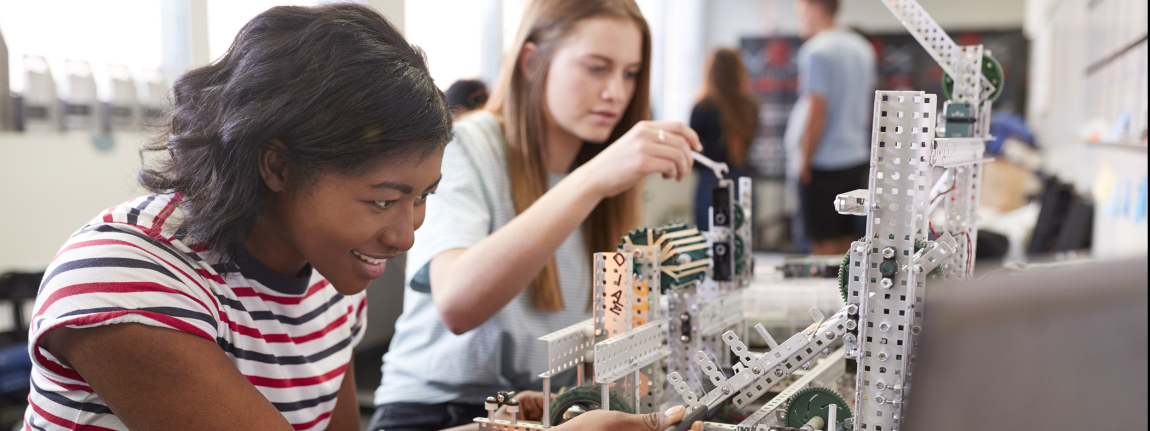Combating algorithmic bias
According to data experts, greater inclusion of women in the sector will make it possible to develop an AI that is more humane and more representative of gender differences. Indeed, we’re beginning to see the discriminatory effects of algorithms programmed mainly by men.
A pledge written by Léa Deleris and Rim Tehraoui (both data managers in the Risk department of BNP Paribas; Rim is Group Chief Data Officer at BNP Paribas) raised the issue of AI models incorporating bias and explored diversity as a possible solution to the problem. "Recent incidents have shown that AI models of any type can incorporate biases, treating people of different racial origin or gender differently. Overall, while AI can exacerbate the spread of bias, this turn of events is not inevitable, and it is up to human beings to establish the appropriate safeguards by making diversity a priority.”
The article adds that an obvious first step to eliminate bias in AI is "to ensure adequate human supervision, by educating and training people on the importance of identifying and mitigating bias when models incorporate variables that may lead to discriminatory decisions." By signing the Women's Forum Pledge on Women & AI, BNP Paribas is committed to preventing the risks of bias in algorithms and to developing AI that contributes to woman’s advancement in society.
- Implementation of best practices in AI governance and training
- Diversity monitoring within the Group AI teams through surveys to promote a "natural" remedy to the problems of bias
"I'm sending out an sos"
This is an emergency. Last year, the Director of the Women's Forum, Chiara Corrazza, was entrusted by the government with a mission to improve the role of women in future professions. "I'm sending out an SOS," wrote Marlène Schiappa, then Minister of State for Gender Equality. “In the sciences, in technology, in AI, we are building a world without women. That's why I have entrusted Chiara Corrazza with a mission on STEM.” Chiara Corrazza's report was presented to the Minister of the Economy and Finance Bruno Le Maire and Marlène Schiappa in February 2020.
Training at the heart of BNP Paribas' strategy
According to the Women's Forum barometer, conducted in partnership with IPSOS, more than 71% of respondents in G7 countries, both women and men, believe that an increased presence of women in STEM and AI would have a positive impact across sectors, promoting economic development and benefitting society as a whole.
But can AI professions convince women to get involved? What appeal do these professions have for women?
For several years now, BNP Paribas has actively pursued policies to promote, both internally and externally, greater representation of women in the technology sector.
Among the measures taken to respond to the problem, it’s essential to raise awareness among girls from the time they start school. One example is the mentoring program organized by the IT department of BNP Paribas that brings together high school girls and female role models working in tech. These meetings enable an exchange between around a dozen high school girls and an employee working in a profession where women are under-represented, and aim to encourage young girls to learn about digital technology.
Similarly, IBM, BNP Paribas and Orange launched the P-TECH project in 2019, in partnership with the French Ministry of Education, to attract young people, including women, to the IT sector. Internally, the Group offers training to help employees upskill and convert to tech—the proportion of women undertaking this training has risen from 26% to 37%.
« the Group offers training to help employees upskill and convert to tech. »
Retraining is an equally important strategy to promote the feminization of AI and STEM. To this end, BNP Paribas is working with its partner Simplon.co to set up a Java Developer training course for job seekers, with a strong focus on women. The goal is to meet both the technical needs of the BNP Paribas Group’s teams and its policy of inclusion—in line with the main theme of the 2020 edition of the Women's Forum.
In France, an employees’ group has been created called “Digital Ladies & Allies x BNP Paribas”, which relays the association’s initiatives internally to encourage women to choose STEM. These initiatives come in many forms: from coding workshops organized by Simplon.co to special educational modules dedicated to women that explain digital professions, promote female role models, or present company and university training courses on STEM.
Let's hope that all these actions contribute to a flourishing of the STEM disciplines with an even greater representation of women.



